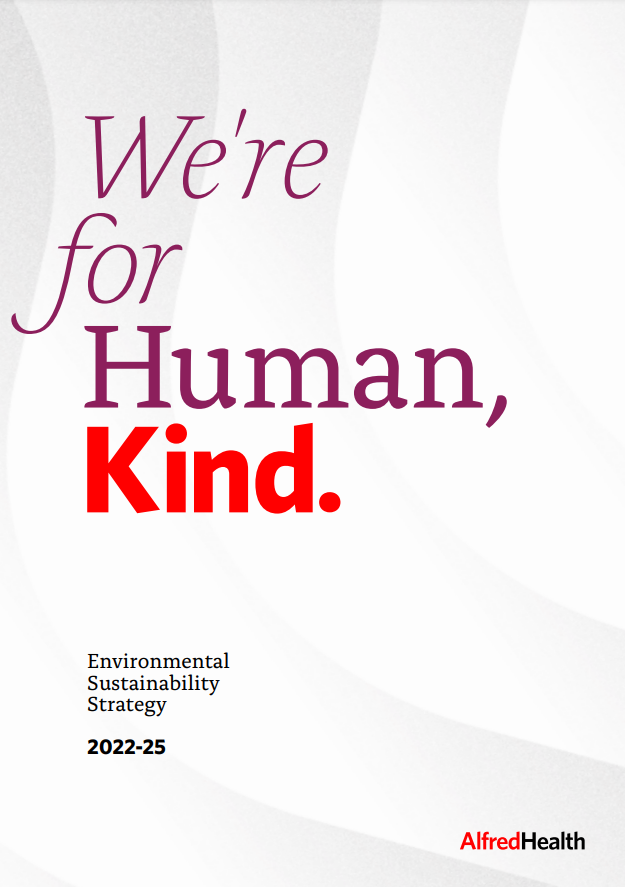Environmental sustainability
Alfred Health is committed to minimising the environmental impact of our operations and demonstrating leadership in how we adapt to meet the challenges climate change poses.

We recognise that the health of the environment is intrinsically linked to human health, with the impacts of climate change increasingly described as a leading threat to public health.
As one of Australia’s leading healthcare services, we acknowledge our corporate social responsibility. We have a responsibility to care for our patients and community today, and to ensure that we continue to do so in the future through sustainable practices.
It's our ambition to become a leader in the development of sustainable healthcare practices for the betterment of our patients, staff and community.
Projects and achievements

Paula Fox Melanoma and Cancer Centre
Alfred Health has put into practice the development of sustainable healthcare practices through the world-class Paula Fox Melanoma and Cancer Centre
In addition to quality patient care, sustainability was also at the forefront when planning the building. The centre is a fully electric building with no natural gas on site. It features a 93kW solar panel system, and all building lights have sensors which will turn off if no movement is detected within a half hour.
Rainwater tanks installed are used for our landscape gardens and are also used to flush all the toilets in the building. Sustainable travel is also a priority, with Active Travel Zone facilities including bicycle parking available.

Re-use of metered dose inhalers
The Lung Function Laboratory has reduced its annual asthma puffer use by purchasing recyclable holders and implementing a new cleaning process, allowing the safe re-use of Metered Dose Inhaler (MDI) canisters between patients. This has led to an annual reduction of nearly 5,000 inhalers.
By purchasing a recyclable holder and implementing a new cleaning process, MDI canisters can safely be reused between patients with no compromise of infection control procedures, leading to a hundred-fold reduction in MDI use.

Green change for operating instruments
Metal surgical instruments that were used once before being sent to landfill are now being recycled through an initiative at The Alfred.
The Single Use Metal Instrument (SUMI) recycling program has been rolled out in our Intensive Care Unit, Emergency and Trauma Centre and main theatres. In the past six months, we have recycled nearly 300 kgs of SUMI.
Steel is the most recycled material in the world, with stainless steel boasting a 70 per cent recycling rate outside of healthcare settings.
The nature of SUMI means they are only used once before being disposed of as clinical waste and ending up in landfill, posing an environmental risk and contributing to our carbon footprint.
E&TC Associate Nurse Manager Cherri Ryan said the SUMI project was a great initiative that reduced our environmental footprint but had a minimal impact to workflow.

Environmental Sustainability Strategy 2022–2025
The Alfred Health Environmental Sustainability Strategy 2022–2025 sets the direction for environmental sustainability across the organisation.
It outlines our commitment to work towards a net zero health system in line with government commitments, and details our contribution towards system goals
Read more about our strategy and download below.